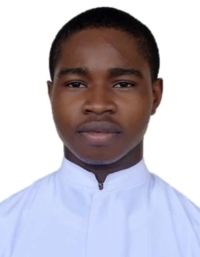 It’s hard to find a more inspiring story of martyrdom than that of the Nigerian seminarian Michael Nnadi, who was brutally killed in early 2020 for his Catholic faith. His bishop said that Michael’s “only crime was his desire to serve God.”
It’s hard to find a more inspiring story of martyrdom than that of the Nigerian seminarian Michael Nnadi, who was brutally killed in early 2020 for his Catholic faith. His bishop said that Michael’s “only crime was his desire to serve God.”
Yet, inspiring as his story is, the reality of martyrdom is only glorious after the fact. Those who endure it in real time don’t experience the glory, but their blood becomes the “seed of the Church,” as Tertullian said in the 3rd century, which radiates glory down through future ages.
But before getting to the details of his story, we need to put it in its larger context.
Nigeria’s Longsuffering Christians
Modern-day Nigeria should be a wake-up call to any unrealistic ideas we might have about martyrdom. The country’s population is approximately 50-50 Christian-Muslim, but it has become the point of the sword for Islamic extremism since the terrorist group, Boko Haram, arose in 2009 and began their murderous rampage through Nigeria’s northern territory. Let me be absolutely clear: there is nothing even remotely good about Boko Haram.
According to the Global Terrorism Index, it is the bloodiest terrorist group in the world. It is responsible for the vicious murders of over 300,000 children and adults, the displacement of over 2 million people, the provocation of regional famines, and countless atrocious kidnappings.
To put the problem in a global perspective, a report on Islamic terrorism released by the non-profit group Open Doors earlier this year, counted 6000 murders of Christians worldwide in 2021. Eighty percent of those murders occurred in Nigeria.
True Horror Stories
The average westerner in touch with the news may remember when Boko Haram kidnapped 276 female students from a boarding school in 2014. All the precious girls were between the ages of ages 16 and 18. To this day as many as 100 of the girls have never been accounted for and are believed either to have been killed outright or sold into slavery.
That was the beginning of a trend. Amnesty International estimates that Boko Haram has abducted and sold into slavery at least 2000 young women since then.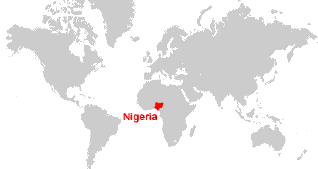
In the same year, the terrorist group burned down 24 buildings of a government school condemning the 59 boys inside to a brutal, fiery death. Boko Haram has since incinerated more than 200 schools and killed more than 1000 students simply because they believe “Western education” to be sinful.
Most of those who are brutally killed are Christians, although Boko Haram has shown few scruples about killing their fellow Muslims.
The current President of Nigeria, Muhammadu Buhari, has been severely criticized for doing little to address the festering problem of Islamic terrorism. His name would seem to indicate where his loyalties lie. He claims that the military’s efforts have “technically” defeated Boko Haram, but as recently as last month, the terrorists kidnapped and murdered a Catholic priest and continue to carry out their wicked agenda.
It would be easy to despair about such appalling situations, but we are not without hope. More importantly, the Nigerian Christians are not hopeless because they have the courage of their convictions.
Lights in the Darkness
 While humans can often bring good out of good, only God can bring good out of evil, light out of darkness, and holiness from hatred. In this perspective, while martyrdom is not a goal to be sought, it has always been prized by the Church because it is the ultimate imitation of Christ, who laid down His life for us.
While humans can often bring good out of good, only God can bring good out of evil, light out of darkness, and holiness from hatred. In this perspective, while martyrdom is not a goal to be sought, it has always been prized by the Church because it is the ultimate imitation of Christ, who laid down His life for us.
The stories of two such sacred windows of light in Nigeria’s darkness need to be told. One is a tale of fidelity to Christ involving a Protestant pastor, the other is the story of Michael Nnadi who would not be silent in the face of persecution. Both events took place in Islamic-controlled Northern Nigeria in January of 2020.
The Good Shepherd
Rev. Lawan Andimi, pastor of the Brethren Church of Christ in Adamawa State, was kidnapped and held for ransom by Boko Haram. They demanded 2 million Euros ransom from his church, but his poor community of believers were not even able to raise 5,000 Euros to secure his release. No other groups or associations came to their aid, despite the prevalence of Christian megachurches all throughout the country. But we should not judge them on this. It’s a dangerous game to begin paying ransoms to terrorists.

In the ransom video Pastor Andimi was forced to make, he admitted that his prospects for survival were not good but insisted that he was not discouraged by his circumstances and gave his people confidence that he was in God’s hands no matter what happened. Pure faith.
It was also reported that he was being bullied into renouncing his Christian faith but had steadfastly and repeatedly refused. A few days later, when the ransom demand was not met, he was taken out to Sambisa forest and beheaded.
The Seminarian Who Would Not be Silent
In another region of Northern Nigeria, a local Islamic gang headed by a man named Mustapha Mohammed conducted surveillance on the Good Shepherd 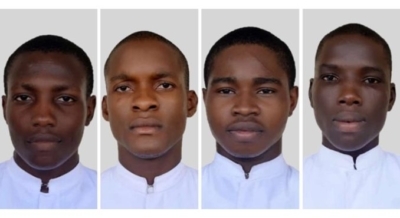 Seminary in the city of Kaduna and carried out an armed raid late one night, kidnapping four seminarians and stealing all their electronic equipment. These young men were between the ages of 18 and 23.
Seminary in the city of Kaduna and carried out an armed raid late one night, kidnapping four seminarians and stealing all their electronic equipment. These young men were between the ages of 18 and 23.
Using the seminarians’ phones, the terrorists made a ransom demand of $250,000 that was later reduced to $25,000. One of the seminarians was found bloody but alive on the roadside the day after the abduction. Apparently the Church had paid a partial ransom and two other seminarians were eventually released seemingly without incident or injury.
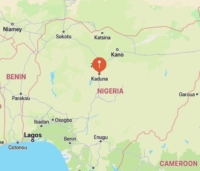 Kaduna, Northern Nigeria
Kaduna, Northern Nigeria
But it was the fourth seminarian, Michael Nnadi, age 18, who presented the real problem for the terrorists. The leader, Mohammed, later gave an interview from prison admitting that, from the beginning of his captivity to the end, the seminarian would simply not let him or his companions have any peace. The young Catholic man incessantly announced the Gospel of Jesus Christ to his Muslim captors.
Furthermore, Nnadi reproached them harshly for their sin and told them to repent and reform their lives otherwise they would lose their souls. This was not a generalized warning. Mohammed said that the seminarian rebuked him “to his face.”
Unrelenting Witness
You have to give the young man credit for an absolutely intrepid, if risky, battle strategy. It would either be the quickest way to get him released or the quickest way to get him killed.
And indeed, it turned out to be the latter. After several weeks of an unrelenting onslaught of truth from the seminarian, the Christian message he was delivering must have so enraged his captors that they brutally killed him just so they wouldn’t have to hear his convicting words.
Yet, like Herod who “felt the attraction” of John the Baptist’s preaching in prison (Mark 6:20), Mustapha Mohammed admitted in the article that he admired the seminarian’s bravery. However, he also chafed at “the confidence displayed by the young man and decided to send him to an early grave.”
Three weeks after the kidnapping, the bishop of the local diocese, Bishop Matthew Hassan Kukah, announced that they had found and identified Michael Nnadi’s corpse and that he had been murdered by the terrorists. Pictures of the body revealed that he had been tortured.
In the funeral Mass, Bishop Kukah spoke about the seminarian’s death as a moment of decision for their country, a “moment that separates darkness from light, good from evil.” His homily ended with a rousing conclusion that deserves to be quoted for its vibrant optimism expressing our belief in the victory of Christ’s Cross over the evil of our world:
We know that Michael’s strength will inspire an army of young people to follow in his steps. We will march on with the cross of Christ entrusted to us, not in agony or pain, because our salvation lies in your cross. We have no vengeance or bitterness in our hearts. We have no drop of sorrow inside us. We are honoured that our son has been summoned to receive the crown of martyrdom at the infancy of his journey to the priesthood. We are grateful that even before he could ascend the earthly altar, Jesus the high priest, called Him to stand by His angels. He was a priest by desire but he is concelebrating the fullness of the priesthood beside His Master. He was lifted up even before his hands could lift up the sacred chalice. May the Lord place him beside His bosom and may he intercede for us. If his blood can bring healing to our nation, then his murderers will never have the final say. May God give him eternal peace.
I’m sure you’ll agree with me that it’s hard to find a finer expression of Christian hope than that.
Two Types of Martyrdom
Nigeria is just one of the many killing fields for Christians in today’s world. According to the same Open Doors report quoted above, an astonishing 360 million Christians around the world live in situations of de facto persecution.
But this is nothing new to followers of Christ. St. Peter himself witnessed to this dynamic before the first Christian century was up: “The brotherhood of believers is undergoing the same trials throughout the world” (1 Peter 5:9).
So, we have to ask ourselves: if persecutions ever come upon us, will we be as faithful as these valiant men? One type of martyr held fast to his belief – “even unto death” – and refused to deny His Lord in the face of threats and pressure. The other preached the Good News of Jesus Christ fearlessly at the very gates of hell.
The honest question I ask myself: if I were ever taken captive for my faith, would they have to put me to death to stop me from speaking about Christ?
———-
[Note: This article is a reproduction of the Sacred Windows Email Newsletter of 8/21/22, so it does not end with the regular Soul Work section. Please visit our Newsletter Archives.]

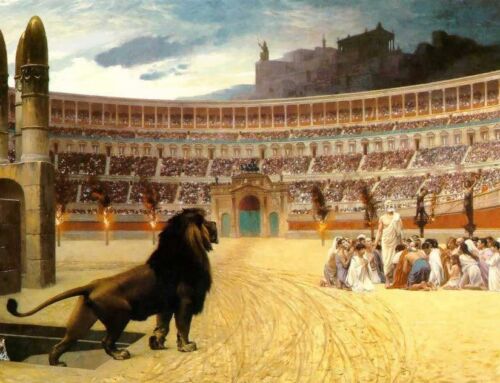
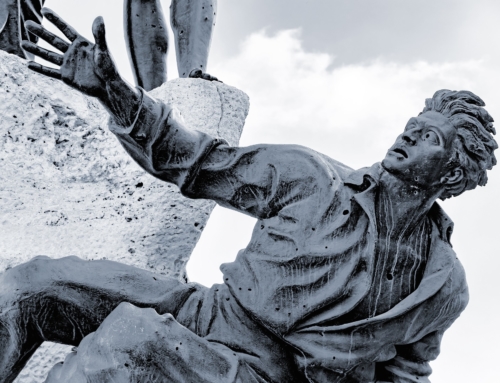
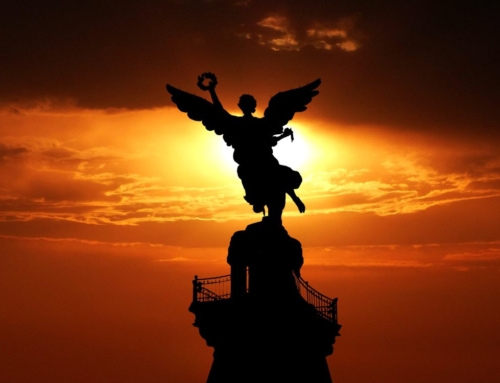
Leave A Comment